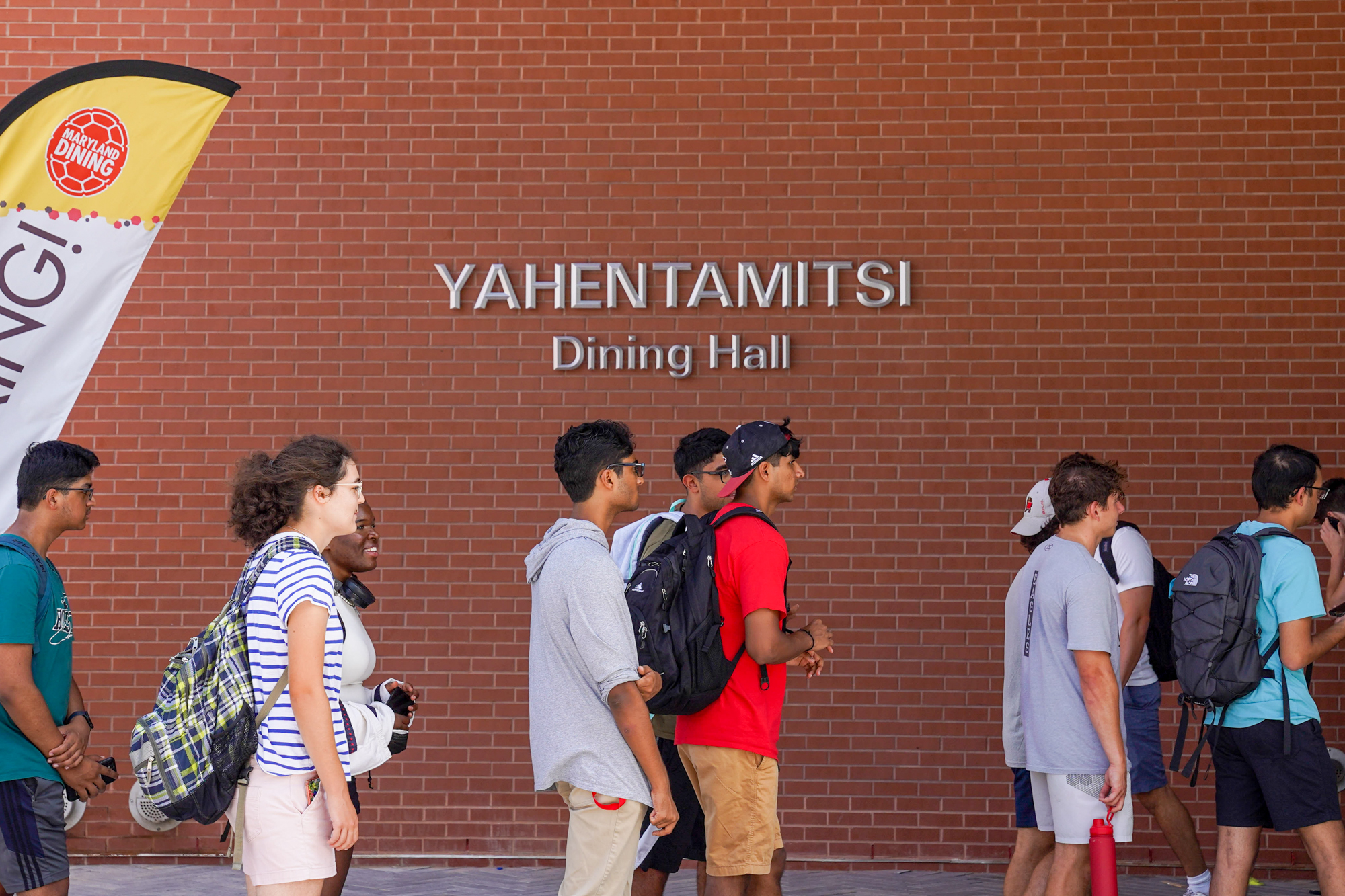Views expressed in opinion columns are the author’s own.
It’s not enough that the new Yahentamitsi Dining Hall has been named in honor of the Piscataway tribe. Even with University of Maryland President Darryll Pines’ direct acknowledgement of their ownership of the land we take advantage of, there is still more this university must do to serve the Piscataway people and other local indigenous groups.
“We acknowledge the truth that is often buried: We are on the ancestral lands of the Piscataway People, who are the ancestral stewards of this sacred land,” this university’s official statement says.
These words come from more than two years of collaboration with Native and Indigenous Elders.
However, these words need to be a lot stronger. Formally acknowledging whose land we are on is an act that should have happened years ago. It shouldn’t have taken until 2022 to openly accept our land’s history.
For how long it has taken us, this acknowledgement is in no way enough. It’s time this university commits to instituting a service-based Indigenous studies minor, not only centered on Native Americans as a whole, but also emphasizing the groups native to our area, such as the Piscataway people.
There has been a performative nature to the steps this university has taken in regards to the Indigenous community. For us to be able to say in the same breath, ‘Well, yes we are on stolen land – but anyway, football game next weekend,’ goes to show exactly that. These words have no weight held behind them – for they are only words. Words can be plastered along every wall on this campus but without continued actions and efforts, they frankly won’t mean much.
These words are the bare minimum of what we should be doing.
ProtectUMD, a student-led coalition, released a list of demands to this university to best give back to its marginalized students. Of these 64 demands, instituting an Indigenous studies minor was one of them. That was in 2016. Today, this has still not happened.
In the past, this university had a Native American Studies department. This was in no way a formal minor, though the department worked to pursue the creation of one in early 2011. However, this program seems to have gone dormant, and little to no initiatives have been made since.
This university only offers less than a handful of courses that center on the Indigenous experience, history, literature or culture. If acknowledging the place of the Piscataway people is truly important to this administration, why isn’t this reflected in our academic programs?
A formal minor will allow students and faculty at this university to incite deep acknowledgement, respect and service for the Indigenous lands we are on.
This minor must be service-based, not solely academic, to encourage active community building between the university and the Indigenous communities around it. This would encourage greater outreach to community members, and may even encourage or provide better access for more Indigenous students to attend this university.
The lands we occupy should be the center of these programs. This university’s unique relationship with the Piscataway tribe needs to be reflected in this program. The Indigenous studies minor at this university must be crafted around the communities belonging to this land and those we honor through the land acknowledgement.
We partnered with the Piscataway tribe when naming Yahentamitsi Dining Hall, and this university can continue this relationship as we develop the Indigenous studies minor. Inviting community members to engage with students will add to the program’s authenticity.
Furthermore, this university has access to so many resources, from relationships with the Piscataway tribe and Indigenous Elders themselves, to significant proximity to the research teams at the Smithsonian’s National Museum of the American Indian in Washington D.C.
There really is no excuse as to why these programs have not been developed yet.
To kickstart this program, a course on the Piscataway people should be developed and made a general education requirement for all students on the campus. It should be as, if not more, important for the students at this university to know about the stolen land we are upon, than taking UNIV100.
It’s disappointing that such a large public institution as this university doesn’t offer an Indigenous studies program of any sort. An Indigenous studies minor has been years in the making. Time and time again, students have advocated for the minor. It is high time this happens.
Our understanding of our position of being on stolen land has to go above and beyond words of acknowledgement. Acknowledgement must always be coupled with action. That action should be the creation of an Indigenous studies minor.
Imaan Shikoh is a sophomore public policy major. She can be reached at ishikoh@terpmail.umd.edu.



